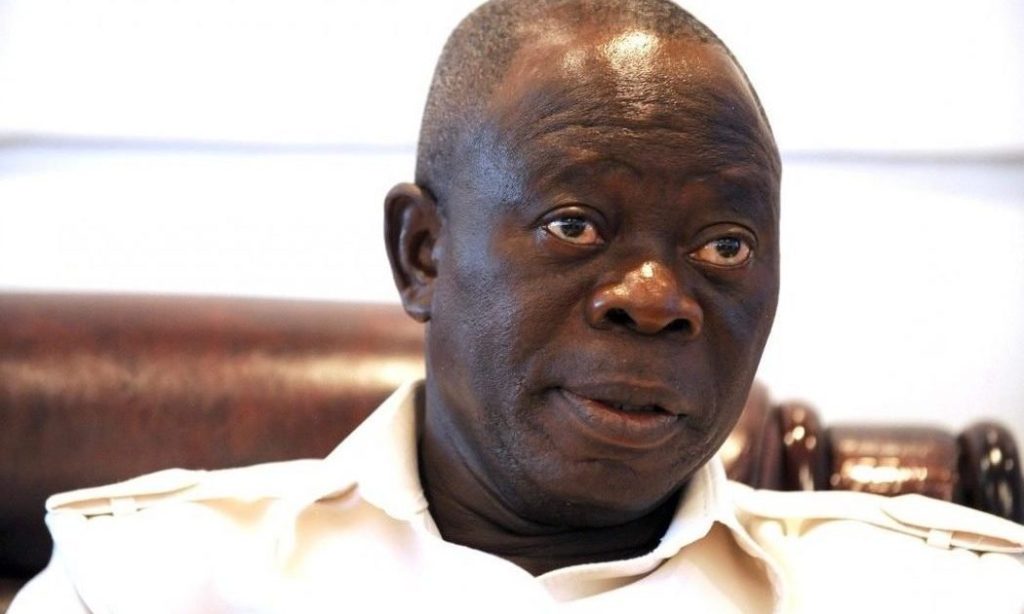The incident at Murtala Muhammed Airport Terminal 1 (Zulu Hall) involving former Edo State Governor and current Senator, Adams Oshiomhole, and Air Peace Airlines sparked a public exchange of accusations, revealing deeper issues within the Nigerian aviation sector. Oshiomhole alleges the airline engaged in racketeering and unethical treatment of passengers, while Air Peace accuses him of violent and disruptive behavior. The clash highlights the frequent frustrations experienced by air travelers in Nigeria, including flight delays, cancellations, and alleged discriminatory practices.
Oshiomhole’s narrative details a series of travel disruptions beginning with a cancelled Air Peace flight the previous week, followed by denied boarding on an Ibom Air flight despite having checked luggage. Stranded with a Ghanaian delegation, he incurred significant personal expenses for accommodation before being assured by an Air Peace manager of a rebooked flight for 6:30 am the following day. Despite checking in online the night before, he arrived at the airport shortly before 6:00 am to discover the flight was allegedly full and check-in closed. This triggered the confrontation, with Oshiomhole claiming other passengers were also affected and forced to pay exorbitant fees for rescheduling.
Air Peace, however, presents a different account. They maintain that Oshiomhole arrived late for his scheduled 6:30 am flight, after boarding had closed, and the aircraft had departed. They allege that upon receiving this information, Oshiomhole reacted violently, physically assaulting airline staff and obstructing the terminal’s entrance, preventing other passengers from accessing the terminal. The airline claims his actions caused significant operational delays and inconvenience to other travelers. The contrasting narratives raise questions about the sequence of events and the veracity of the claims made by both parties.
The core of Oshiomhole’s complaint centers on allegations of overbooking and racketeering by Air Peace. He asserts that the airline knowingly sold more tickets than available seats, prioritizing passengers who paid higher fares at the counter over those who booked earlier online. This alleged practice left several passengers, including himself, stranded and forced to pay additional fees for later flights. He frames this as a systemic issue, prioritizing profit over passenger welfare, and exacerbating the already chaotic travel experience in Nigeria. This accusation strikes at the heart of consumer protection and fair business practices within the aviation industry.
The incident also underscores the broader challenges facing air travel in Nigeria, where flight delays and cancellations are commonplace. Oshiomhole’s experience with both Air Peace and Ibom Air highlights the pervasive nature of these issues, affecting travelers regardless of their status. These recurring disruptions not only cause inconvenience and financial losses but also erode public trust in the reliability and efficiency of the aviation sector. The lack of consistent adherence to schedules raises concerns about operational efficiency and regulatory oversight within the industry.
Beyond the immediate dispute, the incident exposes deeper systemic problems within Nigeria’s aviation sector. The lack of clear communication, inadequate customer service, and allegations of exploitative practices contribute to a frustrating and often chaotic travel experience. Furthermore, the lack of effective regulatory mechanisms to address passenger grievances and hold airlines accountable perpetuates these issues. The incident calls for a comprehensive review of industry practices and regulatory frameworks to ensure passenger rights are protected and airlines operate ethically and efficiently. A robust system of accountability and transparent communication is crucial for building trust and improving the overall passenger experience.


